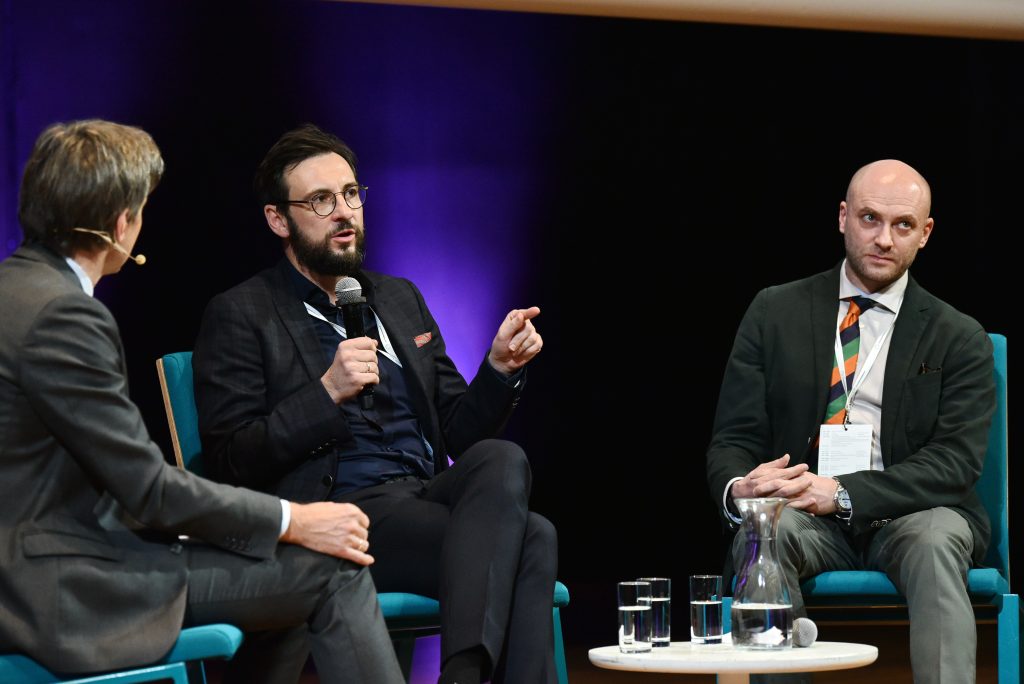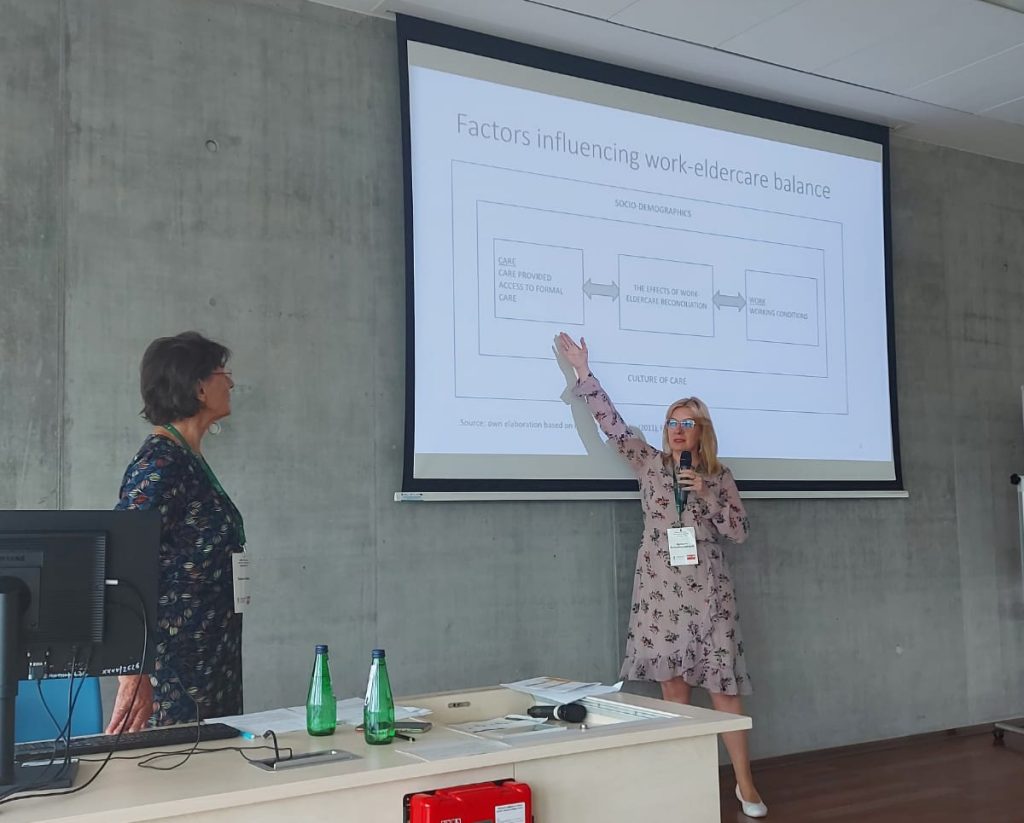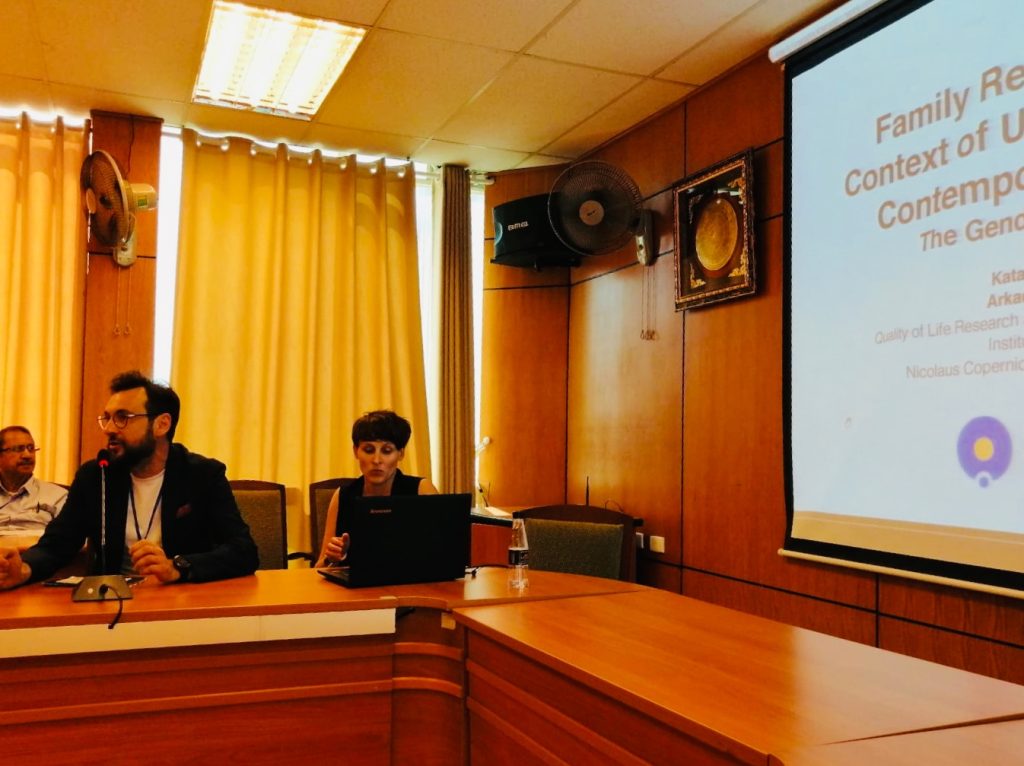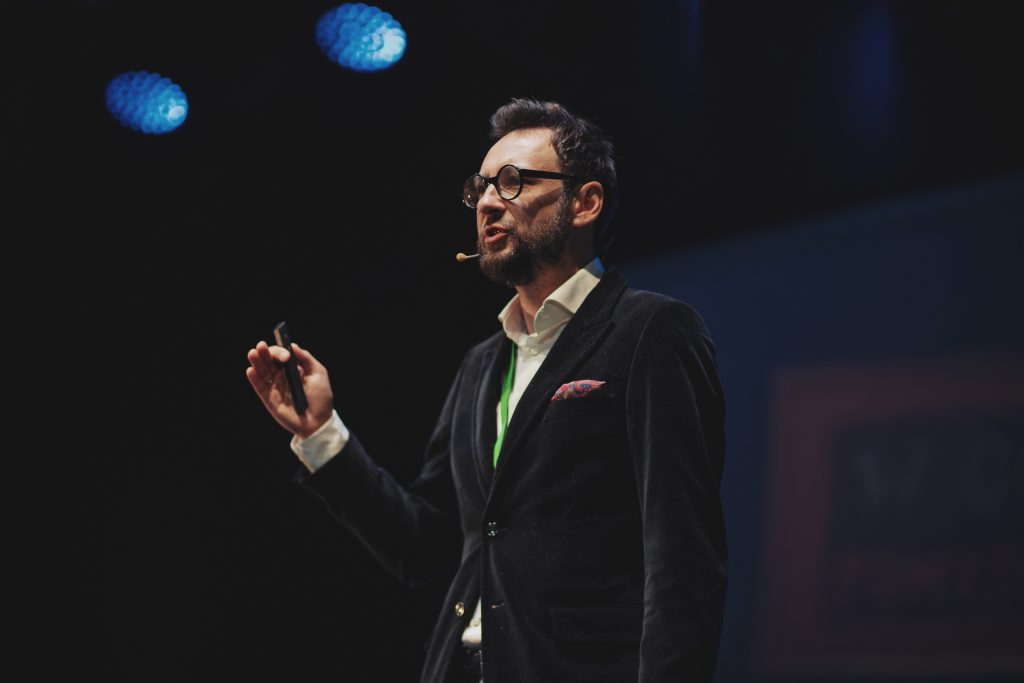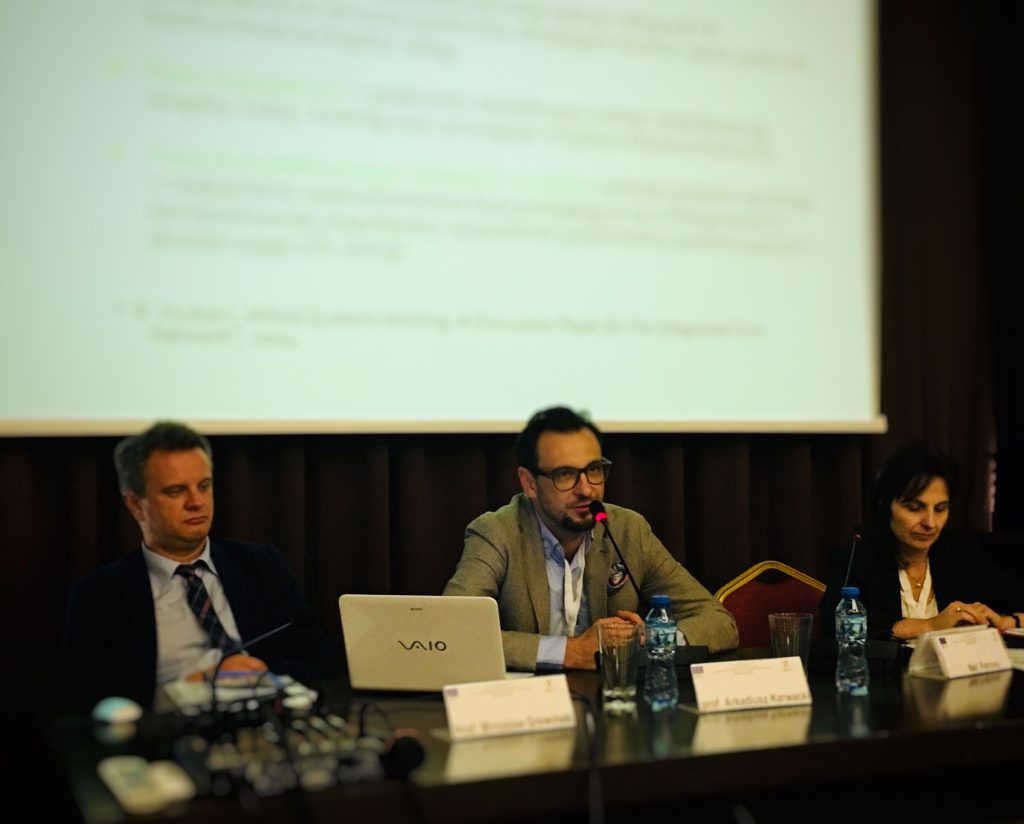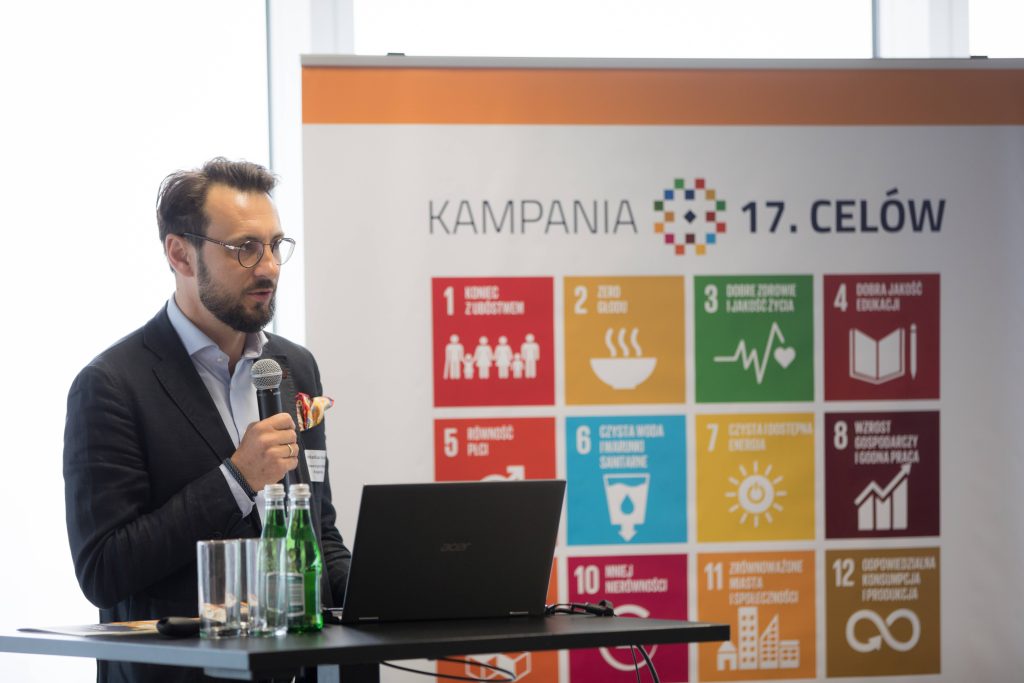Department of Quality of Life Research and Applied Sociology
Department of Quality of Life Research and Applied Sociology
We are a diverse team—we integrate various generational experiences; we are characterized by a nearly-symmetrical gender diversity; we come from different parts of Poland; we were educated and received our professional experience at various academic centers; but we also have diverse and particular research interests. We share a passion for discovering the quality of life conditions and experiences of various social groups and categories, while also striving to make sociological knowledge a useful tool for creating institutional and social changes to improve the level of well-being of individuals.
We conduct research, educate, publish, popularize the results of our studies, create new institutions and help reform existing ones; we offer expert advice in the field of social policy for public institutions, organizations, and enterprises. In our research, we focus in particular on such issues as: social exclusion and inequality (in the economic, social, and cultural dimensions); the functioning and reforms of institutions of the social welfare system; social integration and re-adaptation; the education system; justice; the labor market; family long-term care.
We are interested in issues of physical and mental health, the impact of socio-cultural factors on the human body, working conditions, personal development, transformations of identity under changing socio-cultural conditions, and justice. Our research, as well as our collective and individual aspirations, are connected with nearly every goal of sustained development: we want to conduct research and create designs in order to live in a better world, for us and for others.
Arkadiusz Karwacki, Head of the Department
My “flagship achievements” are the effects of involvement in application activities, based on knowledge from the sociology of social problems and social policy. My greatest joy and satisfaction involved co-authorship of an innovative and universal model of counteracting poverty inheritance (in cooperation with members of the target community) and involvement in creating conditions (legal basis, vision, instructional materials, animation activities) for the creation of social service centers in Poland. This resulted in real reforms, bringing about changes in the institutional system and influencing the quality of life of Poles.
Key publications:
- Reintegration. Aktywna polityka społeczna w praktyce. Instytut Spraw Publicznych, Warszawa, (together with Marek Rymsza and Tomasz Kaźmierczak), pages: 425. https://www.isp.org.pl/pl/publikacje/reintegracja-aktywna-poliytyka-spoleczna-w-praktyce
- Papierowe skrzydła. Rzecz o spójnej polityce aktywizacji. Toruń, Wydawnictwo UMK, pages: 346.
https://wydawnictwo.umk.pl/pl/products/2266/papierowe-skrzydla-rzecz-o-spojnej-polityce-aktywizacji
- Błędne koło. Reprodukcja kultury podklasy społecznej. Toruń, Wydawnictwo Uniwersytetu Mikołaja Kopernika, pages: 243.
https://wydawnictwo.umk.pl/pl/products/1806/bledne-kolo-reprodukcja-kultury-podklasy-spolecznej
- Innovativeness of Social Economy Entities in Poland. An Empirical Study from the Perspective of Positive Organisational Scholarship. Nonprofit Management & Leadership, Volume 28, nr 3, Spring, (with Aldona Glińska-Neweś), pp. 367-382.
https://onlinelibrary.wiley.com/doi/abs/10.1002/nml.21292
- Innovations among people. How positive relationships at work can trigger innovation creation. E&M Economie and Management, nr 3/2017. (with Aldona Glińska-Neweś, Joanna Górka, Agata Sudolska), pp. 84-100.
- „Are the Swedes really aspiring to sense and the Portuguese to status? Cultural activity and income gap in the member states of the European Union”. International Sociology, Issue 27 (6) (with Tomasz Szlendak), pp. 807-826.
https://journals.sagepub.com/doi/abs/10.1177/0268580911423045?journalCode=issa
Research projects:
- Team member in the project “Households in times of coronavirus. Work, education and support under uncertainty” NCN OPUS: contract: UMO-2020/39/B/HS5/03121 (2021-2023).
- Team leader of the IS UMK team in the project “Everyday life during coronavirus – second wave diary competition” (jointly with IGS SGH) (2021).
- Team leader of the IS UMK team in the project “Everyday life during coronavirus – memoir competition” (jointly with IGS SGH) (2020).
- Project manager on behalf of the partner (UMK) in the project “Memoirs of the unemployed. Experience of unemployment and trajectories of exclusion from the perspective of social policy and sociology”. OPUS11 (2017-2019).
Stanisław Burdziej holds an MA in American Studies from Heidelberg University (Germany), as well as an MA and PhD in Sociology from Nicolaus Copernicus University. His current research focuses on procedural fairness and perceived legitimacy of courts in Poland. In 2010, he helped found Court Watch Poland Foundation, an NGO and think tank promoting public engagement in court monitoring and legal education. The Foundation’s program of lay monitoring of courts has resulted in a unique database of over 50,000 court hearing observations, and a series of reports addressed at the Polish judiciary. One project aimed at studying the new developments in problem-solving justice and adopting the community court model in Poland. Another – the pitfalls of the current system of preventing domestic violence in Poland. In collaboration with the OSCE’s ODIHR he visited courts in several countries, including Armenia, Croatia, Georgia, and Montenegro.
Between 2018-2022 Stanislaw was a member of the ERC-funded research team of Euro-Expert led by prof. Livia Holden of the Sorbonne University. In 2018 and 2020 he briefly visited at the Center for Socio-Legal Studies at Oxford University.
Recent publications include:
Burdziej Stanisław, Cultural expertise versus strategic ignorance : confronting cultural diversity In and out of court in Poland, East European Politics and Societies, 2022, s.1-22.
Burdziej Stanisław, Guzik Keith, Pilitowski Bartosz, How civility matters in civil matters : procedural justice and court legitimacy in the midst of a legitimacy crisis, Law and Social Inquiry, 2022, vol. 47, nr 2, s.558-583.
Główczewski Michał, Burdziej Stanisław, (In)justice in academia: procedural fairness, students’ academic identification, and perceived legitimacy of university authorities, Higher Education, 2022, s.1-22.
Burdziej Stanisław, Judging the communist past: historians and cultural expertise in Polish Administrative Courts, Law and History Review, 2020, vol. 38, nr 1, s.99-122.
Burdziej Stanisław, Guzik Keith, Pilitowski Bartosz, Fairness at trial: the impact of procedural justice and other experiential factors on criminal defendants’ perceptions of court legitimacy in Poland, Law and Social Inquiry, 2019, vol. 44, nr 2, s.359-390.
Agnieszka Furmańska-Maruszak holds a PhD in economics. Her scientific interests are located in the areas of human resources management, labour market and eldercare. She has worked as a national expert in Eurofound projects. She has conducted research on the attitudes of Polish and American youth towards the elderly and the quality of communication between generations as part of a cooperation with Bethel University in Minnesota (US). Her research focuses on international comparisons of long-term care regimes and labour market participation of informal carers. She is the president of the University of the Third Age in Toruń: https://tutw.org/
Presentation with Susanne Heeger-Hertter, PhD from Utrecht University entitled “Balancing eldercare and work in Poland and in the Netherlands” during the International Conference “FAMILY WORK AND SOCIAL POLICY”, Poznań University of Economics and Business, 26-27 May 2022.
Selected publications:
Furmańska-Maruszak Agnieszka, Suwada Katarzyna, Familialisation of care in European societies: between family and the state, In: The Palgrave handbook of family sociology in Europe / Castrén Anna-Maija [i in.] (eds.), 2021, Cham, Palgrave Macmillan, p.205-221, ISBN 978-3-030-73305-6. DOI:10.1007/978-3-030-73306-3_10
https://link.springer.com/book/10.1007/978-3-030-73306-3
Furmańska-Maruszak Agnieszka, Heeger-Hertter Susanne, Combining paid work and eldercare in the Netherlands in the practice of selected Dutch organizations, Olsztyn Economic Journal, 2019, vol. 14, no 3, p.255-270. DOI:10.31648/oej.4372
https://czasopisma.uwm.edu.pl/index.php/oej/article/view/4372
Furmańska-Maruszak Agnieszka, Kamińska Katarzyna, Institutional and legal approach to eldercare versus sustainable work concept in selected European Union countries, Ekonomia
i Prawo, 2018, vol. 17, no 3, p.251-264. DOI:10.12775/EiP.2018.018
https://repozytorium.umk.pl/handle/item/5611
Tomasz Leszniewski – Ph.D., sociologist, assistant professor at the Institute of Sociology. He deals with the issues of human identity in contemporary society and meta-reflection on the development of the subdiscipline of sociology – the sociology of education. He is the author of the books: The individual’s identity in the changing society (2008); From individualism to individuality? Theoretical analysis of the phenomenon (2017) and several dozen articles (in Studia Socjologiczne, Kultura i Edukacji, Człowiek i Społeczeństwo, Studia Edukacyjne, and others), as well as chapters in monographs. He carried out research projects dealing with the analysis of changes in sociological knowledge concerning upbringing and education and the institutional consequences of this process – grants from the Nicolaus Copernicus University (2009); Sociology of education (and upbringing) in Poland at the turn of the 20th and 21st centuries – in search of identity (2011). In 2017-2018, he conducted research with Tomasz Biernat (WSB Gdańsk) and Piotr Krakowiak (UMK) on Polish post-accession emigration in Scotland. The study has aimed to define the adaptation strategies of migrants and the identity consequences of spatial and social mobility. The result of this cooperation is the co-author of the book Economic Emigration of Poles to Scotland. Social and Cultural Contexts of Adaptation (2021). In 2018-2019, he participated in the Cooperation – Effective and Effective grant under the POWER 2014-2020 program (research on the model of interinstitutional cooperation in the implementation of various social policies).
Google Scholar:
https://scholar.google.pl/citations?user=GiTsJTcAAAAJ&hl=pl
Researchgate:
https://www.researchgate.net/profile/Tomasz_Leszniewski
Academia.edu:
https://torun-pl.academia.edu/TomaszLeszniewski
Katarzyna Suwada
Key publications
Katarzyna Suwada. 2022. Care involvement and power relations. Parenting and gender in contemporary Poland, “Journal of Family Research”, Early View, 1-20, DOI: 10.20377/jfr-722. https://ubp.uni-bamberg.de/jfr/index.php/jfr/article/view/722/664
Anna-Maija Castrén, Vida Česneitytė, Isabella Crespi, Jacques-Antoine Gauthier, Rita Gouveia, Claude Martin, Almudena Moreno Mínguez & Katarzyna Suwada. 2021. The Palgrave Handbook of Family Sociology in Europe, Cham: Palgrave Macmillan, DOI: 10.1007/978-3-030-73306-3. https://link.springer.com/book/10.1007/978-3-030-73306-3
Katarzyna Suwada. 2021. Parenting and Work in Poland. A Gender Studies Perspective, Cham: Springer, DOI: 10.1007/978-3-030-66303-2. https://link.springer.com/book/10.1007/978-3-030-66303-2
Katarzyna Suwada. 2019. Agency in parents’ fertility behaviours—Gaps in the Polish family policy system, „Social Policy and Administration”, 53(7):1108–1120, DOI: 10.1111/spol.12507. https://onlinelibrary.wiley.com/doi/abs/10.1111/spol.12507
Katarzyna Suwada. 2017. Men, Fathering and the Gender Trap, Palgrave Macmillan, DOI: 10.1007/978-3-319-47782-4. https://link.springer.com/book/10.1007/978-3-319-47782-4
Katarzyna Suwada. 2017. “It was necessary at the beginning to make this whole revolution”. Men’s attitudes to parental leaves in Sweden and Poland, „Men & Masculinities”, 20(5): 570-587, DOI: 10.1177/1097184X17727571. https://journals.sagepub.com/doi/abs/10.1177/1097184X17727571
Research projects
- Strategies for Achieving Work-Life Balance in Polish Society at the Beginning of the 21st Century. A Sociological Analysis
Goal: The project aims to analyse the issue of work-life balance in the Polish society at the beginning of twenty-first century. The problem analysed here is of structural character and is strongly linked with: (1) the particular gender order and gendered division of work in the contemporary households, which is connected with gender inequalities in the public sphere, (2) the welfare state and its family policy system which should help to combine family life with paid work in the labour market and (3) the economic division on the unpaid domestic and care work and paid work in the labour market. In the project two, closely linked, main research objectives can be distinguished. First, the aim is to identify the strategies of achieving work-life balance in the Polish society at the beginning of the 21st century. The strong focus will be put on similarities and differences between men’s and women’s experiences and on the role of family policy and its mechanisms enabling parents to participate in the labour market and supporting them in providing care for children. The second aim is to study the organisation of unpaid domestic and care work in the Polish households. In this perspective it is important to answer the question how men and women perceive this type of work, how it is organised (also with the support of other family members, hired baby-sitters or through the use of public or private childcare institutions).
Project was financed by the National Science Centre in Poland (research grant Sonata 10, No UMO-2015/19/D/HS6/02338)
Date: 1 September 2016 – 28 February 2021
- Fathering and New Patterns of Fatherhood. Fathering in Everyday Life in a Socio-Institutional Context in Polish Society at the Beginning of the 21st Century
Goal: The main objective of this research project was to show how young men in Polish society fulfill their role of father and to confront this area of practices with new patterns of fatherhood, which are described in academic literature. Fathering is situated in a broader problem socio-institutional context, in which obstacles to men’s active parenthood and encouraging mechanisms are included. I assume that fatherhood is a social construct partially shaped by external factors and conditions. In this perspective specific character of Polish society, which is affected by the process of political transformation 22 years ago and which is still very traditional and grounded in catholic culture, affects fatherhood and fathering in everyday life differently in other Western countries.
Research grant PRELUDIUM 2 was financed by the National Science Centre in Poland realised at the Institute of Philosophy and Sociology of the Polish Academy of Sciences in Warsaw, Poland.
Date: 1 September 2012 – 30 June 2015
Flagship project: Katarzyna Suwada. 2017. Men, Fathering and the Gender Trap, Palgrave Macmillan, DOI: 10.1007/978-3-319-47782-4. https://link.springer.com/book/10.1007/978-3-319-47782-4
This book provides an account of fatherhood and changing parental roles in Sweden and Poland. It uses a comparative perspective to show what men understand a father’s role to be, and how they seek to live up to it. Fathering, the author argues, is a social phenomenon grounded in cultural patterns of parenting, gender roles and models of masculinity, and also shaped by family policy. Being a father today, she demonstrates, is longer connected solely with being the main breadwinner. Rather, it has become increasingly common for fathers to take on duties traditionally regarded as the domain of women. This means that men often face conflicting expectations based on different models of fatherhood. The aim of this thought-provoking book is to track these models, analysing their origins and their consequences for gender order. It will appeal to students and scholars of gender studies, the sociology of families and social policy studies.
Anna Wójtewicz – Ph.D., Sociologist, assistant professor at the Institute of Sociology. Her work as a researcher is related to the following areas: sociology of the body and gender, social dimensions of health and illness, consumer society and consumer culture. She is the author and co-author of the books: Anielice czy diablice. Dziewczęta w szponach seksualizacji i agresji w perspektywie socjologicznej /Angels or devils. Girls into the claws of sexualization and aggression from a sociological perspective/ (2009), Perspektywa gender w polityce społecznej /The gender perspective in social policy/ (2016), Dobra i usługi społeczne dla najstarszego pokolenia: szanse rozwoju w kontekście realiów społeczeństwa masowej konsumpcji /Goods and social services for the oldest generation: changes for development in the context of the reality of mass consumption society/ (2014), Ciało w kulturze konsumpcji: efektywność edukacji zdrwoatnej na przykładzie sieci szkół promujących zdrowie. /The body in the culture of consumption: the effectiveness of health education in example of a network of health promoting schools/ (2014), and articles – for example in Studia Socjologiczne (2018, 2020), Przegląd Socjologiczny (2020), Qualitative Sociology Review (2017, 2018), and others, as well as chapters in monographs.
Her current research project (funded by the National Center of Since) is titled Cultural Practices Connected to the Body in Everyday Life of Four Generations of Polish Male. A Sociological Analysis. The aim of the project is identification and analysis of what Polish men representing four generations do in relation to their bodies (that is called cultural practices). The research is carried out by individual in-depth interviews with elements of a biographical interview. Additionally, for a better understanding of male body-related practices, she conducts an analysis of media messages directed to men. The linking of data from interviews and the existing data covering the period of 70 years (from the 1950’s to the 2020’s) allows to better understand the structure of everyday male practices, the sources of differences between them, to understand the connection between what men do and what is happening on the level of cultural content, and the way bodily practices change other areas of social life.
Anna Wójtewicz teaches Sociology of the body (based on her own original program), diploma seminars and other courses for students of sociology, media studies and other faculties. She is also an active participant in sociological conferences both in Poland and abroad.
More information:
https://scholar.google.com/scholar?hl=pl&as_sdt=0%2C5&q=anna+w%C3%B3jtewicz&oq=Anna+W%C3%B3
https://www.researchgate.net/profile/Anna-Wojtewicz

 ul. Fosa Staromiejska 1a, 87-100 Toruń
ul. Fosa Staromiejska 1a, 87-100 Toruń